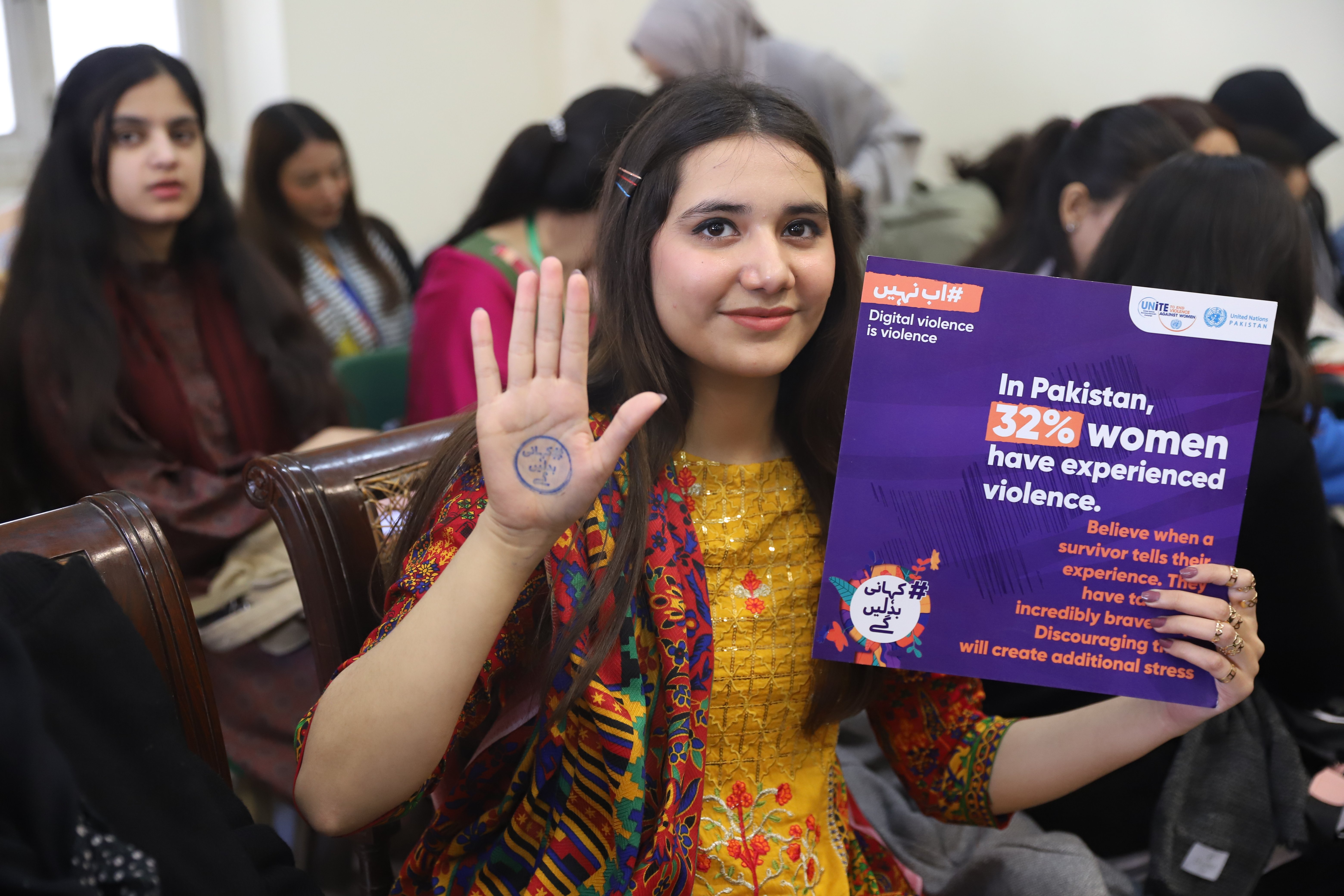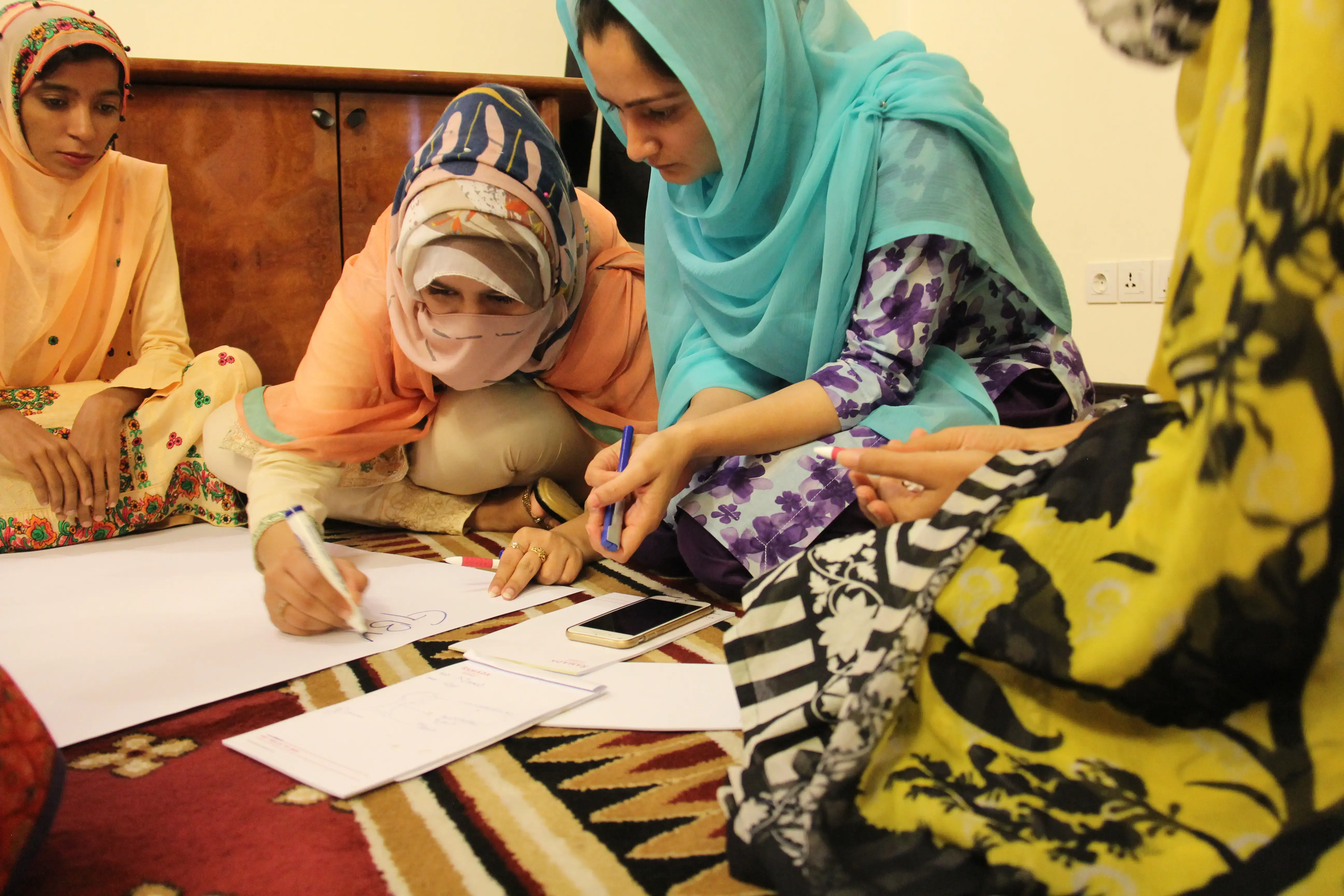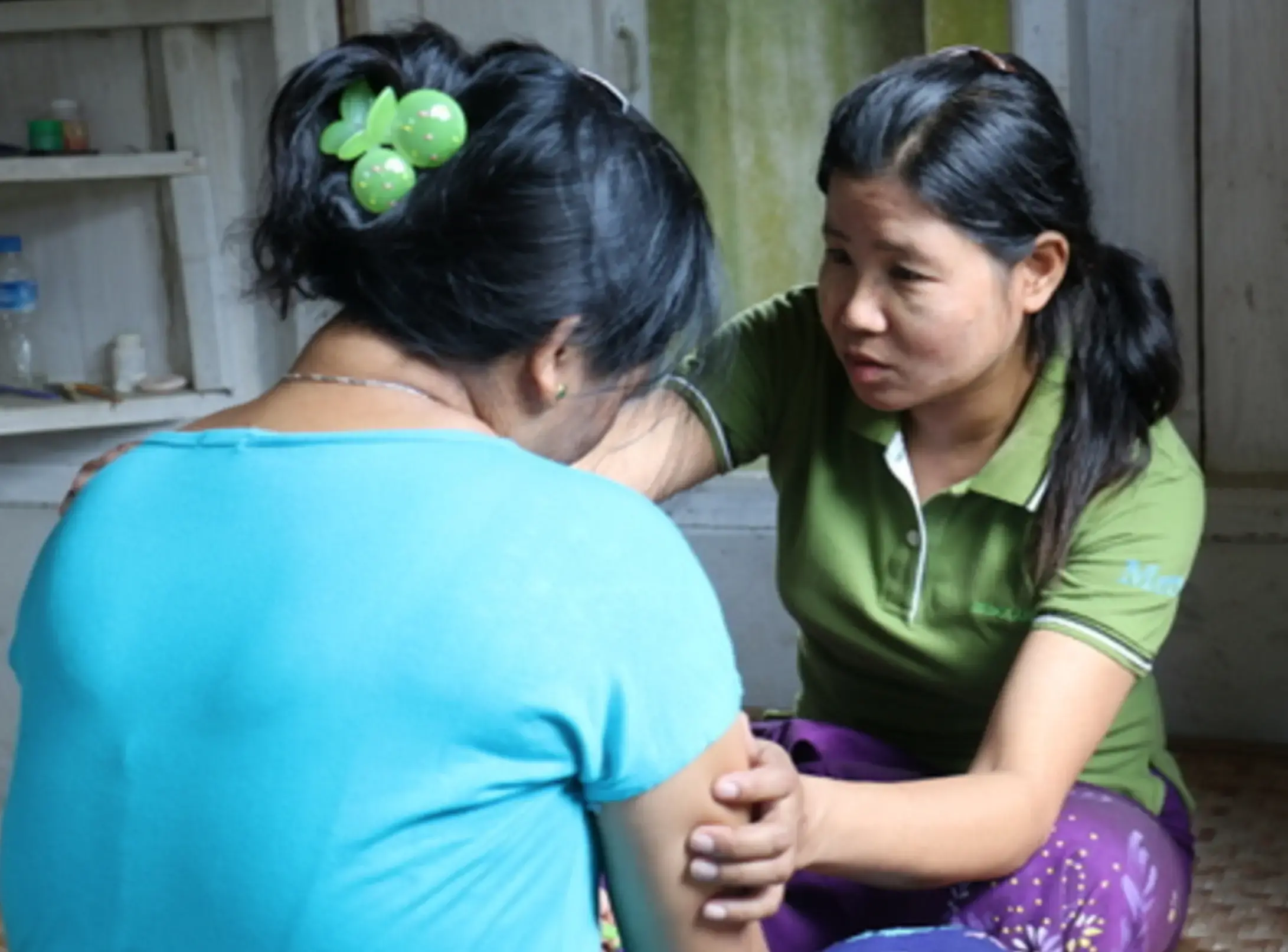In Pakistan, 28% of women aged 15-49 have experienced physical violence, and 6% have experienced sexual violence. 34% of ever-married women have experienced spousal physical, sexual, or emotional violence. Five percent of women have experienced spousal sexual violence (Pakistan Demographic and Health Survey 2017-18). 56% of women who have experienced any type of physical or sexual violence have not sought help and or talked with anyone about the violence. This is mainly due to socio-cultural barriers, economic dependency and lack of information, accessibility as well as lack of existence of support systems such as health care and psycho-social support services.
According to Pakistan Demographic and Health Survey (PDHS), 18% girls (aged 20-24) were married before the age of 18, and 3.6 % were married before the age of 15 - curbing their education, and putting their health, wellbeing and safety at risks including that of anemia, malnutrition, teen pregnancies, prolonged labor, obstetric fistula, and even death.
Pakistan has a good normative legal framework for gender-based violence. The past two decades have seen various pro-women laws, mainly in the form of amendments to the penal code. These include recognition of 'honour' crimes as a criminal offence and robust laws on rape, domestic violence, sexual harassment, forced marriage, deprivation of inheritance and exchange of women between disputing groups as a way of settlement. Despite these laws being in place, weak implementation and response mechanisms to gender based violence and child marriage remains an issue. The underlying reasons including discriminatory gender and social norms lead to weak and ineffective support structures, often resulting in impunity for the perpetrators.
To prevent and respond to GBV and child marriage issue, the availability of robust data as well as, policy advocacy at all levels is vital. In addition it is important to strengthen the institutional capacities and change the discriminatory social norms.

UNFPA’s role
UNFPA’s work in Pakistan strengthens the capacity of both public sector and civil society partners to prevent and respond to GBV and harmful practices including child marriage, in both development and humanitarian settings. In this regards, UNFPA carries out the following
- Supports the government ministries, entities and departments (including criminal justice actors) at federal and provincial levels for to generate, disseminate and utilised robust and disability inclusive evidence related to GBV and child marriage for evidence informed policy making and programming.
- Supports strengthening and implementation of laws, policies, frameworks and guidelines on the issue of gender-based violence (sexual and domestic violence) and child marriage.
- Supports institutional strengthening through extensive capacity and comprehensive building initiatives including on GBV case management; clinical management of sexual violence including rape; disability inclusion in GBV prevention and response; cash voucher assistance in GBV case management, multisectoral GBV prevention and response
- Engages with media to promote responsible representation and reporting on Gender Based Violene and Child Marriage
- Supports ethical research that contributes to long-term efforts in addressing Gender Based Violence and Child Marriage
- Supports government partners (GBV helplines, Women Shelters and Protection Centres) in setting up GBV administrative data systems using best practice on the ethical and safe collection and use of GBV administrative data to inform programming and policy interventions and improve GBV services.
- Develops and rolls out of Social Norms Package to transform discriminatory social norms and practices related to GBV and child marriage.
- Supports high level policy advocacy to advance women rights and gender equality.
As the co-lead for GBV under the Global Protection Cluster and PSEA, UNFPA plays a crucial role in the protection of women, girls, persons with disabilities and that at the risk of violence and abuse during emergencies and natural disasters. UNFPA closely collaborates with Ministry of Law and Justice, Ministry of Human Rights, National Commission on the Status of Women, planning and development departments, health departments, social welfare departments, women’s development departments, provincial commissions on the status of women, criminal justice sector, civil society organisation, women led organisations, organisations for persons with disabilities and parliamentarians effectively design, manage and evaluate programmes that address GBV and child marriage.




